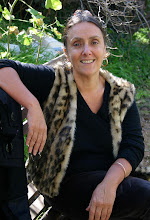"What became of the people of Earth?” the
traveller asked the storyteller.
“What happened to them?”
“Ah,” the storyteller sighed. “They lost their
stories, so they died."
__________________________________
We are alive in interesting times.
That aphorism has been attributed to an ancient Chinese curse.[i] Apparently there never was such a curse; the exotic story of its origins is a myth.[ii] The world abounds with myths, stories told personally and collectively to explain human experience.
Stories link us to our past and to our future. It is through story that human beings weave the threads of experience into a tapestry of meaning. Stories come in many forms. Fiction is a literary work based on the imagination and not necessarily on fact. A legend or fable is a story about mythical or supernatural beings or events. An allegory or parable is a short, moral story. Myth -- a traditional story often accepted as history -- serves to explain the world view of a people.
What, then, is the story we know as history? Clearly, it is something that belongs to the past. Is it an adventure story, a mystery, or a romance? Is it legend or myth? And how does it affect us in the twenty-first Century?
As an Australian child born in the fifties, I knew of at least one institutional home for Aboriginal children. If I thought of it at all, it was with a fizzy benevolence that the children were being provided for. It never occurred to me -- or the adults in my life -- to wonder why the children might need a home. Where were their parents?
I now know that their parents were powerless to prevent the children being stolen from their families to be raised in institutions. I call that story a tragedy. What of other stories from our past?
While it may be possible to collect the facts of an event from our own lifetime -- although, even that can be uncertain -- it is almost impossible to be sure of the stories that have come down to us through millennia. Our current consensus reality is in part determined by stories that began thousands of years ago, their origins long forgotten.
Nowhere is this more obvious than in the conservation and environment debate. In the last fifty years there has been a gradual recognition of the serious environmental issues threatening human survival, yet there is still widespread ignorance of the underlying attitudes to Nature that contribute to the problem. In the modern world, Nature is regarded as separate from human beings rather than as the matrix of which we are a part.
Anthropological studies have suggested that the identification of women with nature and males with culture is both ancient and widespread. This cultural pattern itself expresses a monopolozing of the definition of culture by males. The very word 'nature' in this formula is part of the problem, because it defines nature as a reality below and separated from 'man', rather than one nexus in which humanity itself is inseparably embedded. It is, in fact, human beings who cannot live apart from the rest of nat ure as our life-sustaining context, while the community of plants and animal both can and, for billions of years, did exist without humans. The concept of humans outside of nature is a cultural reversal of natural reality. How did this reversal take place in our cultural consciousness? Rosemary Radford Ruether [iii]
Over the next weeks, I will be posting stories I have written about our relationship with Nature.If you have stories to share, please post a comment with a link to your stories or poems or musings . . .
[i] http://www.noblenet.org/reference/inter.htm In a speech in Cape Town, South Africa,
on June 7, 1966, Robert F. Kennedy said, "There is a Chinese curse which
says, "May he live in interesting times." Like it or not, we live in
interesting times..." Journalists picked up the phrase and it has become a
commonplace. It might be related to the Chinese proverb, "It's better to
be a dog in a peaceful time than be a man in a chaotic period."
Rosemary Radford Ruether is a writer and active
campaigner for women's spirituality. She authored the first ecofeminist book,
New Woman/ New Earth: Sexist Ideologies and Human Liberation in 1975. Her most
recent book is Gaia and God: An Ecofeminist Theology of Earth Healing. (Send stamped
S.A.E. if you would like notes and excised mid-section.) The Women's
Environmental Network runs a number of green campaigns and also organises
occasional talks by prominent ecofeminists: WEN, Aberdeen Studios, 22 Highbury
Grove, London, N5 2EA (Tel. 071 354 8823).

No comments:
Post a Comment
Comments and discussion always welcome . . .